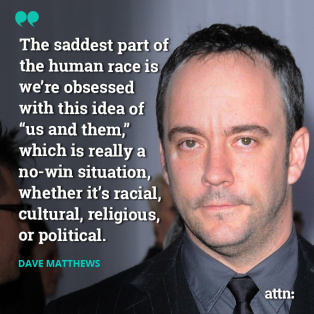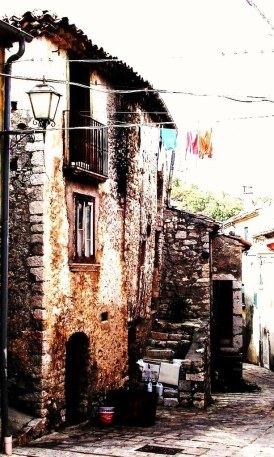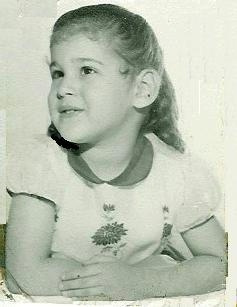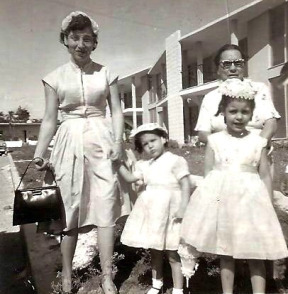THAT CRAZY DESIRE TO CONQUER HATE WITH LOVE
by Kyrian Lyndon
 Photo by GDJ
Photo by GDJIf you are defending the rights of others who
are denied whatever privilege you enjoy, does that mean you have a savior
complex?
It’s one of many questions I ask myself, given the fact that I’ve been doing this since I was twelve. It was instinctive then, and it’s instinctive now because I don’t want to live in a world where bigotry seems to be the norm. Whether people were happy or unhappy about this stance I’d taken has never made a difference to me.
I have also questioned my own motives at
every turn.
It’s not about being politically correct. As far as I’m concerned, it is simply right, and I’m so confident of that that I’ll stick to it no matter who or what I stand to lose in the process.
 Photo by Mark
Photo by MarkIs it about tolerance? Nope. I would not even list that trait among my qualities, since there is much I can’t and won’t tolerate, including things that may seem unreasonable to the culprits, and yep, one of those things is the cruelty generated by prejudice. So, in choosing friends and partners, there are plenty of deal breakers, sure, but their origins will have nothing to do with it.
Who am I to merely tolerate people anyway because they weren’t born with my skin color, ethnicity, sexuality or socioeconomic status, or happened to be taught some other religious philosophy? There is simply no part of me that believes whatever I was born as makes me superior to another. Nor is there any part of me that wants to deny people justice or the rights and equality they deserve.
That’s my two cents’ worth, and I’m not claiming to be the bigger or better person than anyone who opposes because I’m simply hardwired this way. Besides that, I have plenty of faults. Barbarity just isn’t one of them.
I’ve accepted, too, that impartiality doesn’t help you win popularity contests. Gaining acceptance and fitting in are often about forming alliances based on race, gender, religion, orientation, ethnicity, political beliefs, and so on. There are those who consider me naïve for stubbornly hanging on to this neutrality like a Pitbull with a pork chop. Others may chalk it up to me having this willful, rebellious, antagonistic nature. Either way, some individuals feel I am wrong and are perplexed by my fierce defense of the “other side.”

I can honestly live without such flimsy alliances. Most of those alliance-forming factors are not a basis for forming an opinion. And when people come back at me with, “Stereotypes exist for a reason,” I say, “That is still what they are, stereotypes. You don’t know someone until you do.”
Anyway, here’s my story.
 nucleo antico di campochiaro (campobasso).
nucleo antico di campochiaro (campobasso).molise -italy- Photo by Francesco de Vincenzi
My father was born in Campochiaro, Italy. He came to the U.S. with his family when he was fifteen years old. They lived in Woodside, Queens, which was a predominantly Irish neighborhood. Italians were not welcome. They were called everything from dagos to greasy meatballs. Italians had initially been greeted in some places by “No Italians Allowed” signs and had to change their surnames before anybody would hire them. My dad always worked, rarely taking sick and vacation days. He married a woman of Spanish descent, born in Havana, Cuba. She also came to the U.S. as a teenager, and they met in a class where they were both learning to speak English. Like him, she made sure she remained employed and dependable. While they were still newlyweds, he fought for our country, on the front line, making the rank of Sergeant, and he received a Purple Heart.

By the time I came along, there were plenty of Italian families in Woodside. Italians had made the acceptance cut. Spanish people were the new threat, committing the crime of paving the way for other Hispanics. Because of my mother, my siblings and I were told to “go back to Cuba,” a place I’d only visited once when I was three. They called us spics. And the main culprits of this bullying were, surprisingly, Italian.
 In Havana – my mom holding my hand and
In Havana – my mom holding my hand and my Abuela behind my oldest sister
My mother lied about being Spanish to strangers, saying she was Italian. She thought she’d be perceived as another one of those wetbacks coming over to the U.S. for a handout when she, in fact, came here legally. She also refused to speak Spanish at work to avoid being judged.
Some people will tell you it’s all about paying your dues, earning your place. Irish people experienced oppression and persecution before the Italians did, and once everyone got over the Spanish neighbors, they were directing their venom at the Indians, Pakistanis, and so on.
Regarding black people, I’ve often heard the argument, “Well, we did what we had to do to earn respect.” My answer to that was, “But you weren’t brought here in chains and forced into slavery. You’re not being discriminated against anymore. They are.”
Understandably, people of cultures that have been oppressed feel a kinship with their own, especially when the oppression continues. Who could blame them for supporting and defending one another?
If you go through life as a member of any oppressed group, which includes women, you see the global and systematic imbalance, the unfairness, and the cruelty. One example is women believing other women when they share experiences about rape and abuse. Another is the men who hate these women for making their gender sound like monsters and feel they’re being blamed because they are also a man. The thing is, we should all want the truth and due process, but some must adamantly defend their “group.”
What I’ll never understand is being okay with anyone facing the type kind of scorn, ridicule, and discrimination that tore their own hearts out.
My extended family on both sides had their own prejudices, to say the least. Meanwhile, my curiosity in wanting to get to know all these non-white people was insatiable. I kept seeing that I had beautiful experiences and encounters with them. When I was twelve, my favorite bands were The Temptations—five black soul music vocalists and dancers— and Santana, featuring a hot Mexican-American guitarist. (Santana’s music is defined as Latin-infused rock with salsa, blues, and African rhythms.) On The Temptations’ Puzzle People album, there was a song called “Message from a Black Man,” and God knows what my parents were thinking when I amped it up and sang along with the lyrics. But I really wanted to hear that message. I felt compelled to.
Say it loud ! Be proud of who you are without hating!
During my high school days and later on in other community-like settings—even recovery circles—it was apparent to me that some people showed a preference for making friends with people who shared their background. I certainly got the impression that they felt superior to anyone who was not “one of them.” And to this day, when I go to the doctor, and I’m sitting in the waiting room, white people look delighted when I sit beside them. Maybe if they knew all the details of my ancestry, they’d scoot away. Who knows? 



